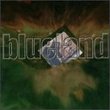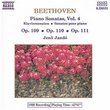| All Artists: John Zorn Title: The Parachute Years, 1977-1980: Lacrosse, Hockey, Pool, Archery [7-CD Set] Members Wishing: 4 Total Copies: 0 Label: Tzadik Release Date: 9/16/1997 Album Type: Box set Genres: Jazz, Special Interest, Pop, Classical Styles: Avant Garde & Free Jazz, Experimental Music, Historical Periods, Modern, 20th, & 21st Century Number of Discs: 7 SwapaCD Credits: 7 UPC: 702397731627 |
Search - John Zorn :: The Parachute Years, 1977-1980: Lacrosse, Hockey, Pool, Archery [7-CD Set]
![The Parachute Years, 1977-1980: Lacrosse, Hockey, Pool, Archery [7-CD Set]](/images/no_cover/l.png?v=15401716) | John Zorn The Parachute Years, 1977-1980: Lacrosse, Hockey, Pool, Archery [7-CD Set] Genres: Jazz, Special Interest, Pop, Classical
|
CD DetailsSimilar CDs
|
CD ReviewsIntriguing, somewhat overwhelming, and unique. Michael Stack | North Chelmsford, MA USA | 04/28/2005 (4 out of 5 stars) "It's hard to describe this set without introducing the game piece concept-- early in John Zorn's compositonal career, he fused his love of block oriented compositional structures with his love of improvisation and spontaneous interaction-- the result: a series of rules for improvisation, structuring the event as a game that the players move through and are forced to adhere to. The resulting music tends to be dense and lacking anything resembling traditional structure, while Zorn and many involved are typically pigeonholed as jazz, this music is pretty far from there. The four pieces assembled here, "Lacrosse", "Hockey", "Pool", and "Archery" are Zorn's output for Eugene Chadbourne's Parachute label-- these were the first LPs he released, together with alternate takes, rehearsals, a lost session, and so on. Each piece is contained in its own jewel case (or fat double/triple as necessary) with its own liner notes, and on top of that is an additional liner note with a few nice essays about the music contained within and a booklet of photos from the sessions. All this is housed in a lovely box with a picture of a rather young John Zorn on it. A bit about each of the pieces on here: "Lacrosse" is about short events-- ideas never develop because the events are required to be short, creating a rather frustrating listen. The firs tdisc has six takes (including the three issued) of the album and three alternate takes and features Zorn, electronic performer Mark Abbott, violinists Polly Bradfield and LaDonna Smith, and guitarisst Eugene Chadbourne and Davey Williams. The "tinws" version, recorded a year earlier in San Francisco features Zorn, Chadbourne, guitarist Henry Kaiser and sax player Bruce Ackley. Parts of it are fantastic, particularly on the twins version, but largely its frustrating because ideas never develop and the structure is lost. "Hockey" is a bit more difficult to deal with, but somehow comes off better-- presented in two versions, electric (with Chadbourne, Wayne Horvitz on piano, and Bob Ostertag on electronics) and acoustic (Bradfield, Mark Miller on percussion, and Zorn), both times in several takes-- the idea here seems to be to take turns entering, soloing, and leaving. The electric takes work better as there's more an illusion of structure, although the acoustic part illustrates the concept better. "Pool" and "Archery" are both combinatoric game pieces-- featuring the musicians in various formations-- "Archery", for twelve piece, limits this to duos and trios, "Pool" has only five pieces and does not. Events, either on the clock or stimulated by a musician or prompter cause change in the ensemble. "Pool" features Bradfield, Miller, percussionist Charles Noyes, Ostertag and Zorn, with Lesli Dalaba prompting; "Archery" has the larger ensemble of Robert Dick (flutes, gamecalls), George Lewis (trombone), Zorn, Coleman, Horvitz, Kramer, Chadbourne, Bill Horvitz (guitar), Bill Laswell (bass), Bradfield, Tom Cora (cello) and David Moss (percussion, voice) with Mark Smith prompting. Overall, "Archery" works better as the continued interaction encourages the musicians well, and even the rehearsal comes off quite well and is full of humor and quite enjoyable. This set is not for the casual listener-- check out "Cobra" if you're curious about game pieces. For those who love Zorn's game pieces, this is essential." Great stuff -- IF you like this sort of thing... Allan MacInnis | Vancouver | 06/11/2001 (5 out of 5 stars) "...I'm not sure how I feel about this music. It's bleepy, chaotic, odd. This is NOT the Zorn that most listeners will be familiar with -- these are some of his first recordings, the first put out entirely under his control, back in the late 1970s. These are "game pieces" -- structured enviroments for improvisation -- and as such bear SOME resemblance to the later Cobra recordings; but they're a little, I think, rawer, sparser, "noisier," further out there, and in ways that, in the wrong mood, can be a little alienating (thus far, I like ARCHERY the most, find it the warmest, richest, most embracing of the sessions, while still being, well, weird noise). The musicians are superb, as on any Zorn release -- some of the more familiar names include Eugene Chadbourne, Tom Cora, Anthony Coleman, Wayne Horvitz, Henry Kaiser, Kramer, Bill Laswell, and Bob Ostertag -- plus there's a bunch of people I'm less familiar with, like David Moss and Mark E. Miller... Some of these people contribute to the liner notes, as well as the sounds (Bob Ostertag contributes an anecdote about trying to get Zorn to play at a festival of new music at a peak timeslot, and having Zorn refuse, because, as Ostertag explains, "he had this strongly held belief that if you played in front of too many people it ruined the music." Eugene Chadbourne's original notes from LACROSSE are also in evidence) The liner notes are one great reason to buy this set -- for insights into Zorn's development as a composer and performer pre-BIG GUNDOWN, for statements of purpose from the time, and generally interesting anecdotes and insights. The packaging is also beautiful, as with almost any Tzadik release; there are reproductions of the graphic notations used for ARCHERY; there are plenty of photographs of the musicians at work; and there are some cardboard cards with art on them I don't fully understand yet. Discs and booklets are illuminated with bits from the ancient Persian work, "Automata of Al-Jazari," which I know nothing about -- stuff Zorn apparently dug out from the Metropolitan Museum of Art, on one of his routine quests for inspiration. The LP issues of these recordings were limited to runs of a thousand, and are long gone collector's items now; these discs also include lots of outtakes, rehearsals, alternate versions, etc, that have never been released before. They're now also available as separate packages from Tzadik, I think, but if you're seriously interested in this period of Zorn's work, or the nexus between improvised and composed music, or just weird noise to play in the background to disturb your houseguests, it's not such a bad idea to just buy the box. Then you'll have it all and not have to think about it anymore, right? Besides, 7 CDs for a hundred bucks is a pretty good deal, eh...?"
|

 Track Listings (6) - Disc #1
Track Listings (6) - Disc #1![Black Box [Torture Garden/Leng Tch'e]](https://nationalbookswap.com/cd//m/34/0134/260134.jpg)

